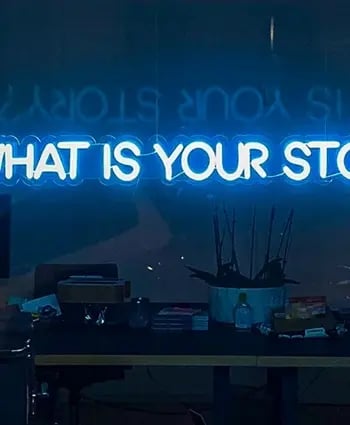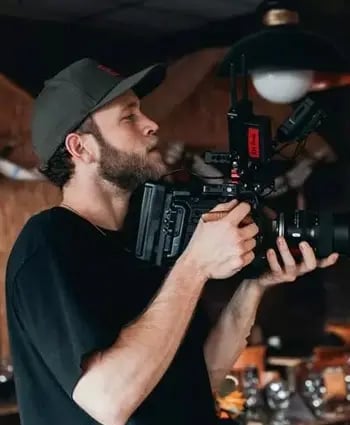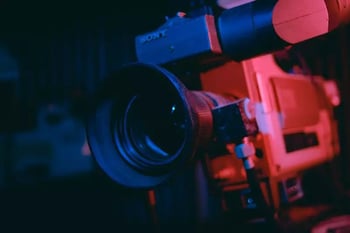The History and Evolution of Video Production
Explore the rich history of video production, from its humble beginnings with silent films to the digital age and the promising horizons of VR and AR.
From the earliest moving pictures to today's dynamic digital age, the history of video production is a fascinating journey of technological and creative evolution. This article traces the key milestones that have shaped the industry, painting a vivid picture of how far video production has come and where it might be headed next.
The Birth of Moving Pictures
The journey of video production began in the late 19th century when inventors across the world tinkered with devices to create and show moving images. Thomas Edison and William Kennedy Laurie Dickson introduced the Kinetoscope in the 1890s, a forerunner to the movie projector. Meanwhile, in France, the Lumière brothers developed the Cinématographe, which combined a camera, printer, and projector into one device. These inventions marked the first time audiences could experience the magic of moving images.
The Silent Era and The Arrival of Sound
For the first few decades, films were silent, relying on visual storytelling, accompanied by live music or sound effects. However, in the 1920s, 'The Jazz Singer' broke this convention, becoming the first commercial feature film to include synchronised sound. This monumental shift ushered in the 'talkies' era, forever changing the course of cinema.
The Advent of Colour
While colour experiments existed since the early days of cinema, it wasn't until the 1930s that Technicolor, a colour process, gained popularity. Films like 'The Adventures of Robin Hood' and 'Gone with the Wind' showcased the potential of colour, adding a new layer of realism and aesthetic appeal to motion pictures.
Television Changes the Game
The mid-20th century saw the rise of television, introducing a new medium for video production. The immediacy and accessibility of TV forced filmmakers to adapt their techniques. The advent of TV also birthed new content formats like news broadcasts, sitcoms, and live sports, thereby diversifying the video production landscape.
Camcorders and Democratisation of Filmmaking
The 1980s were revolutionary for individual creators. The introduction of camcorders, like Sony's Betacam, meant that video production wasn't confined to big studios. Now, amateurs could film, produce, and edit their own videos, paving the way for indie filmmakers and the eventual explosion of user-generated content on platforms like YouTube.
The Digital Revolution
As we transitioned into the 21st century, digital technology began to eclipse traditional film. Digital cameras offered numerous advantages: they were more versatile, allowed for easier editing, and dramatically reduced production costs. Filmmakers like George Lucas championed digital filmmaking, with films such as 'Star Wars: Episode II - Attack of the Clones' being shot entirely on digital.
Rise of Streaming Platforms and On-Demand Content
Platforms like Netflix, Amazon Prime, and later, Disney+ have revolutionised how we consume video content. With the capacity to reach global audiences instantly, these platforms have also changed content production paradigms, fostering niche genres and offering filmmakers more creative freedoms.
Virtual Reality (VR) and Augmented Reality (AR)
The latest frontier in video production is the immersive world of VR and AR. These technologies are reshaping storytelling, allowing viewers to step inside the narrative, experiencing stories in a 360-degree environment. Though still in its infancy, the potential of VR and AR in video production is vast and largely untapped.
A Future Unwritten
The history of video production is a testament to human innovation and our enduring love for storytelling. As technology continues to evolve, so will the ways we tell and consume stories. From the flicker of the first moving picture to the immersive worlds of VR, one thing remains constant: our drive to capture, share, and experience stories in ever-evolving formats.
Whether you're a seasoned professional or a curious enthusiast, understanding the rich tapestry of video production's past can inspire and guide your future endeavours in this captivating field.
Written by Jonathan English CEO for Venture Videos — a full-service video production agency that specialises in producing creative videos & campaigns that get real results.









.webp?width=350&height=425&name=ezgif.com-gif-maker%20(63).webp)




